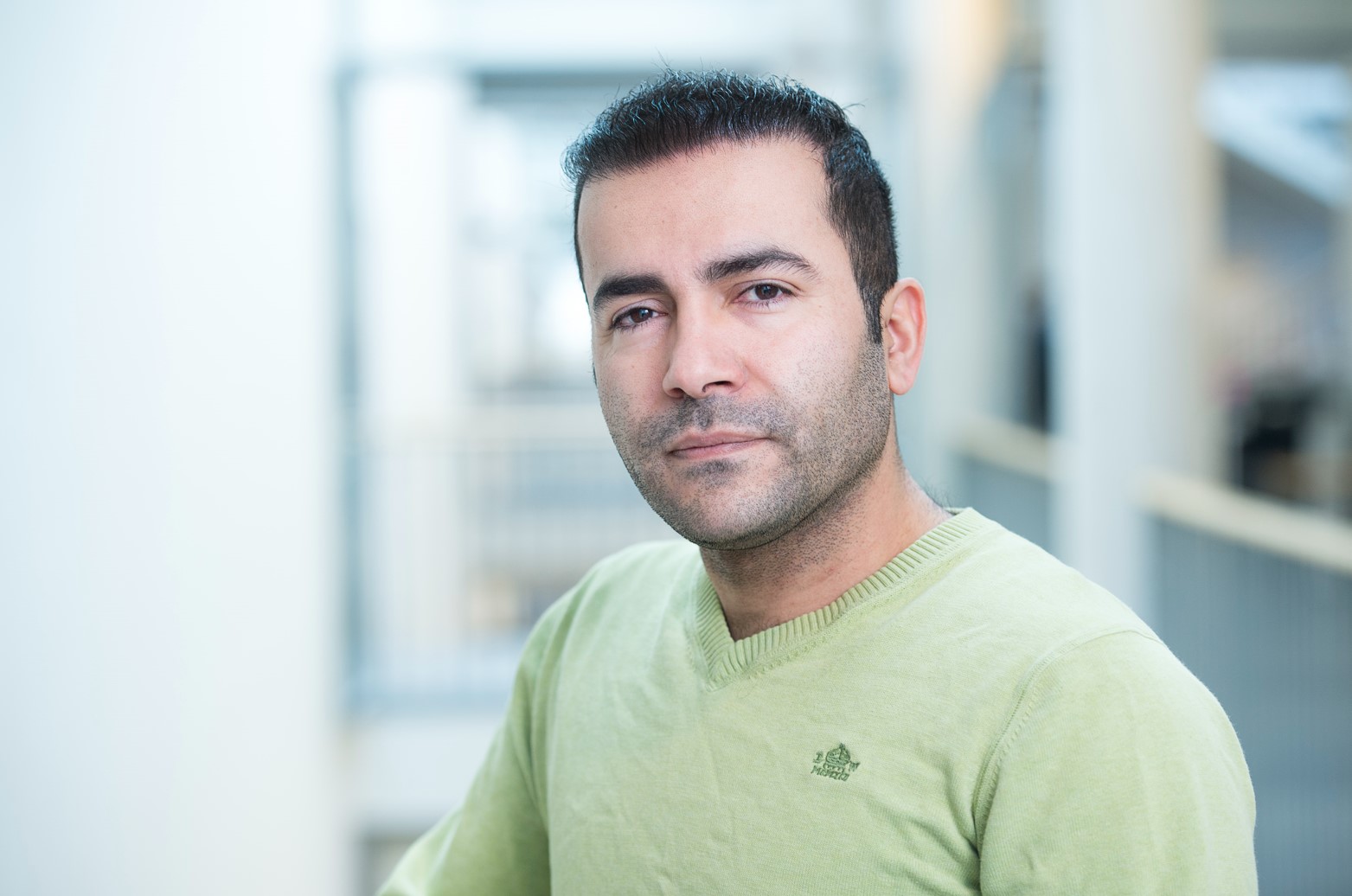Meet Aswo Safari: The same driving force behind film and research

Aswo Safari
In 2014, Aswo Safari received his Doctorate at Uppsala University and was awarded the Wallander Scholarship by Handelsbanken. He has worked as a visiting research fellow at The Massachusetts Institute of Technology, Harvard University, the University of Sydney and Otago University.
In addition to conducting research, Aswo Safari teaches International Business and International Marketing at Mälardalen University.
Initially, he didn't actually want to be a researcher, but instead wanted to write screenplays. At the age of 21, Aswo Safari applied to the University College of Film, Radio, Television and Theatre in Stockholm, was shortlisted to the final phase as one of eight but was advised to go and gain some life experience instead.
This led to studies in Philosophy, Economics with an increased focus on Business Administration, which is where he became hooked and found his calling. Since then, Safari has written articles about trust in the public sector, about purchasing behaviour from other countries on the Internet, and psychological factors that govern trust amongst other things.
“The thesis went smoothly, and I was on a roll. I received the Wallander Scholarship with three years of funded research and spent my postdoc years at MIT, Harvard, the University of Sydney in Australia and Otago in New Zealand," he says.
He loves travelling and the opportunity to meet interesting people through his research, and sees research not as an end purpose but as a tool for instigating change.
“Looked at retrospectively, filmmaking and research concern the same thing. A kind of escape from reality in order to highlight problems and provide a solution for creating a better world. In research, it is common to study empirics and develop your own theories, but I do the opposite. I study theories and show how they can be used to improve reality," explains Aswo Safari.
Companies that want to become more international in foreign markets will reap the greatest benefit, but basically Safari's research is about relationship-building in general.
"Two things are crucial for international business: uncertainty and a lack of trust. Contrary to popular belief, it is not the geographical distance that affects uncertainty but cultural differences – the legal system, population, the form of government, etc. if you do not already know the company. Of course, the skill and competence of the company matters, but the emotional aspect is just as important. To reduce that uncertainty, companies need to work with confidence and understand how to build relationships," says Safari.
This can be done above all with the help of local bridge builders who can introduce the company to a new market. But it is no guarantee even if someone is familiar with the country itself, he points out.
"Sometimes things go lopsided and then you have to change direction. There are agents and distributors who only look after their own profit, but a good bridge builder immerses themself in the product and the company's competence.
And here is where research starts to apply. Safari has regular meetings with a CEO at MITC, Mälardalen Industrial Technology Center, who agrees with his theories and believes that they benefit the company.
"It feels good that the results are useful. In the research community there is an underlying requirement to publish, but here I get to do what I like and see that the theories are used. As researchers, we are part of that process, and if the knowledge is good enough, it will live on.
Your research has a common theme of trust and confidence.
"That's right, and my whole life has been about internationalisation. My parents come from Iran but fled to Iraq, where I was born before I came to Sweden and Hallstahammar as a 12-year-old. Of course, there was a lot of misery, and in the pursuit to create film or research there is an underlying desire to create a better world," states Safari.
In parallel with conducting research, he teaches three courses in International Business and International Marketing – at Master’s level, C-level and now also at A-level.
"In fact, the A-level is the most difficult level because the students are not used to theoretical concepts. This means that I need to use abstract concepts and find concrete examples from reality.
What do you do when you're not working?
"I like to travel and work out, and I like hiking. Certainly, it is a privilege to do research, but it is also important to care about your life, your friends and colleagues as a way to get positive energy for your research. There is a difference between being in the service of research and in the service of humanity, and one needs to serve both. During one’s life one should help the weakest; in research one should challenge the strongest. I have tried to contribute in this way at least.
What advice would you give others who want to do research?
"Not to think of research as a job but as a way of living. If you view research as an 8:00–17:00 job, you're going to have problems," says Safari.
Have you ever regretted that you started with research yourself?
Aswo Safari laughs.
“Not exactly. I get to meet interesting colleagues, spend time internationally and work with issues that are beneficial. But basically, it's about feeling passionate no matter what you work as. For instance, before I started researching I was very handy and could build pallets, but today I don't know if I can do that anymore.
Contact Information
